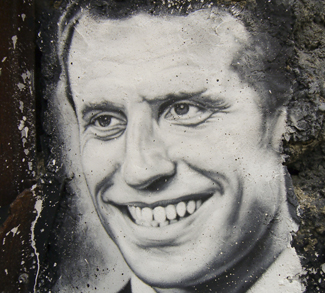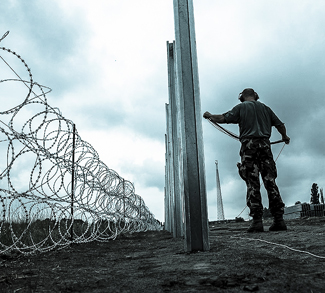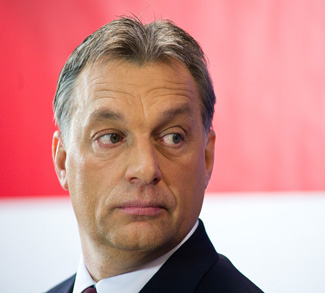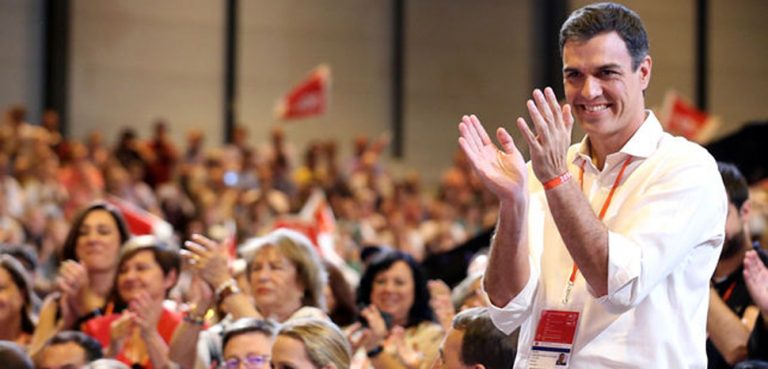Africa will inevitably be central to Emmanuel Macron’s presidency, as has always been the case for French heads of state. But so far, the Elysée has had a rough start setting the scene for the new administration’s relationship with its former colonies. Macron’s most recent gaffe – his assertion that many of the challenges facing Africa were “civilizational” and connected to high fertility rates – was his own iteration of former President Nicolas Sarkozy’s infamous speech in Dakar in 2007, which came laced with condescending allusions that Africans had failed to embrace progress. While there is still time to make amends and shape an effective Africa policy, the window of opportunity is closing fast for the new French president.
Not surprisingly, Macron’s comments were denounced as out of touch at best and racist at worst and were compounded by a recent streak of faux pas. For one thing, his latest blunder came only weeks after he made a tactless joke about traditional Mahoran fishing boats, which he said are “mostly carrying Comorian refugees these days.” The joke wouldn’t seem quite so bad, however, if it weren’t for the fact that Macron’s refugee and migrant policies were equally uninspired. Most recently, he raised the possibility of establishing “hot spots” in certain African countries to evaluate claims for asylum on the ground rather than on French soil, but the plans remain poorly defined and have received strong criticism from Human Rights Watch and other groups. Marine de Haas of French charity Cimade slammed the plan: “The idea is to intervene as early as possible to sort the refugees – to choose between friendly asylum seekers and evil economic migrants. As if it was as simple as that.”
As the aspiring leader of the free world, Macron should do more to direct the attention of Paris and Brussels to the issue of development in Africa.
Thus far, Macron has proven himself to be far more interested in tackling migration as a security issue and not as a development one. His Libyan ceasefire initiative is the most recent example. Two days before he floated the idea of establishing refugee evaluation hotspots, he organized a meeting between the UN-backed Prime Minister Fayez al-Serraj and Khalifa Haftar, the general controlling the east of the country, which resulted in an agreement to call a ceasefire and hold elections next year. While a resolution of the grinding security and political situation in Libya would be a major step towards ameliorating the North African migrant crisis, development remains a key factor. After all, the only thing that will dissuade desperate Africans from undertaking the deadly voyage to Europe is economic opportunity at home.
As the aspiring leader of the free world, Macron should do more to direct the attention of Paris and Brussels to the issue of development in Africa. Chancellor Angela Merkel’s “Marshall Plan for Africa,” a cornerstone of Germany’s G20 presidency that aims to increase private investment in the continent, is a promising step. The plan aims to achieve “equal cooperation between Africa and western countries in areas such as education, trade, business development and energy,” improve market access for African exports, and halt tax evasion by large corporations. However, in terms of funding, the $18 billion set aside by Germany pales in comparison to the original Marshall Plan, which rose to a total of the equivalent of more than $120 billion today. Even with a combined effort by Germany, France, and other EU members, it would be nearly impossible to provide all the capital required to equal that initiative.
But state aid is far from the only source of capital available to invest in African development. African immigrants who have established themselves in Europe send billions of dollars every year in remittances home to their families – money that boosts household income and, in the absence of adequate government support, is spent on food, education, and healthcare. Last year, remittances sent to Africa totaled more than $60 billion, far more than what Western powers allocated to overseas development aid. Unfortunately, the full power of remittances remains the exclusive domain of companies like Western Union and MoneyGram, which occupy dominant positions in the money transfer market and leverage this dominance to extract lofty fees from the checks that migrants send home. Fees are higher in Africa than anywhere else in the world, with average costs of 10% to remit $200 and rates of 14.6% in the southern part of the continent. This is due in large part to dismal levels of competition in the African remittance market, where Western Union and MoneyGram control 65% of all payout locations. On top of that, exclusivity agreements severely restrict potential market entry.
This is where Macron and other European leaders could make much more of a difference. Already, there have been small signs of progress: following a migrant summit in November 2015, European and African leaders pledged to reduce transaction costs for sending remittances to less than 3% by 2030. The following year, the European Commission’s antitrust authority opened up an investigation into allegations that Western Union had colluded with banks to drive rivals out of the market – an investigation that has yet to produce any results. However, a more urgent drive to lower transaction costs, as well as to investigate the dominant money transfer operators for engaging in anti-competitive agreements, would go far towards increasing rates of purchasing power – and in turn, development – across Africa.
With such vast untapped potential in the African remittances sector, Macron has a ripe opportunity to not only form a more cohesive Africa policy, but also to position France as a leader on the migrant crisis. Rather than bashing Africans for having too many babies, establishing “hot spots” to weed out bona fide asylum seekers from economic migrants, or focusing solely on the security dimension of the issue, Macron should take the initiative to propose serious solutions for African development. Unleashing the full power of remittances would be an excellent way to achieve both.
The opinions, beliefs, and viewpoints expressed by the authors are theirs alone and don’t reflect any official position of Geopoliticalmonitor.com.




